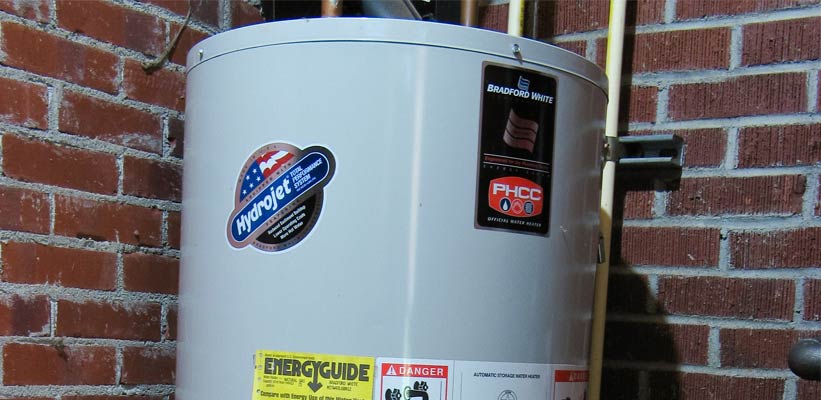
It’s always difficult to determine the right decision when it comes to your water heater. Repairs are affordable and they’ll keep your system running for another year or so. However, you find yourself repairing your water heater constantly and it’s becoming more and more tedious. Perhaps it’s time time to invest in a new system, but you also want to ensure that you’re making the right investment.
We here at Las Vegas Water Heater Replacement want to help simplify the process:
The Age of Your Water Heater
How long have you had your existing system? The average gas-powered water heater has an average lifespan of roughly 15 years. However, once you hit that 10-year threshold, you should strongly consider replacing it. This is typically when your system is entering the final years of its life and the repairs are becoming more common and costly. You wouldn’t put a new engine into an older car, would you? Upgrading your water heater will make a huge difference.
Increased Monthly Energy Bills
Take a look at your monthly water heating expenses. Are you noticing a dramatic increase in your bills over the past several months? This is usually a tell-tale sign that it’s time to replace your current system with a new one. The higher energy costs typically indicate that your system is no longer energy-efficient and has to double its workload to produce its normal output. Your water heater accounts for roughly 14% of your home energy expense. Increased efficiency is going to make a huge difference in what you spend on your monthly utility bills.
Frequent and Costly Repairs
How often are you having someone repair your water heater and how much are you spending on said repairs? One way to determine if you should replace your existing system is through the 50% rule. If you are spending 50% or more of what your water heater is worth on repairs, then it is certainly time to move on and replace it.
However, if the cost of repairing it doesn’t cross the 50% threshold, then you will need to keep in the mind the frequency with which you are undergoing water heater repair work. How many breakdowns have occurred in the last year alone? Is your water heater nearing the 10-year mark? If so, then the repairs are not worth the investment.
Troubleshooting Common Issues
Some operational issues are a lot more common than others. For example, perhaps your water heater isn’t producing as hot of water as you would like. If this is the case, then you will need to inspect your thermostat and make sure that it’s accurately reading the temperature of your water. You may also have a defective heating element. Fixing a minor issue will prevent you from having to invest a ton of money in a complete replacement.
Whatever is causing the issue, here are some tips on troubleshooting:
Electric Water Heater:
- Make sure that your electric unit is connected to your power supply and then reset your thermostat.
- Flush out your hot water storage tank and remove any sediment collecting at the bottom of it.
- Check if your hot water pipes have proper insulation.
- Replace the heating element or thermostat in your water heater if they are defective.
- Raise the temperature setting in your thermostat and then immediately check to see if this makes any difference.
Gas-Powered Water Heater:
- Make sure that the gas line is connected to your hot water heater and check to see if the pilot light is lit.
- Flush out your water heater and remove the sediment or insulate your hot water pipes.
- Clean the gas burner and install a new thermocoupler (the device shuts off your gas when the pilot light goes out).
Other Common Issues:
- You hear an audible hissing or sizzling noise. This typically indicates that there’s an accumulation of sediment at the bottom of your hot water tank. You will need to drain all of the water out of your storage tank and scrape off any scale collecting inside your system.
- If the pressure relief valve is leaking, then it’s time to replace it.
- Leaky water supply pipes will require you to tighten the fittings. If this doesn’t work, then we recommend that you shut off your water supply and replace the fittings.
Other Considerations
When replacing your current unit, you can always purchase a newer version of the same model, or you can upgrade it with a whole new system. This includes tankless water heaters, solar water heaters, or a regular 40-gallon heater. Some other features that are important include your recovery rate, size and energy efficiency ratings. As the technology continues to improve and get better, hot water heaters are becoming more compact and efficient. They can also produce a fresh batch of hot water at a much quicker rate than ever before. We understand that investing in a new system may potentially break the bank, but consider all of the amazing benefits of installing a new water heater. It’s going to make a huge difference in you and your family’s daily lives.
Have any questions about replacing your existing water heater? Give us a call and one of our technicians can help you narrow down your best options moving forward. Repairs are also a viable option depending on your circumstances. Whatever you decide to do, it will benefit you immensely by consulting a professional. We provide reliable water heater repair services throughout the greater Las Vegas area.
